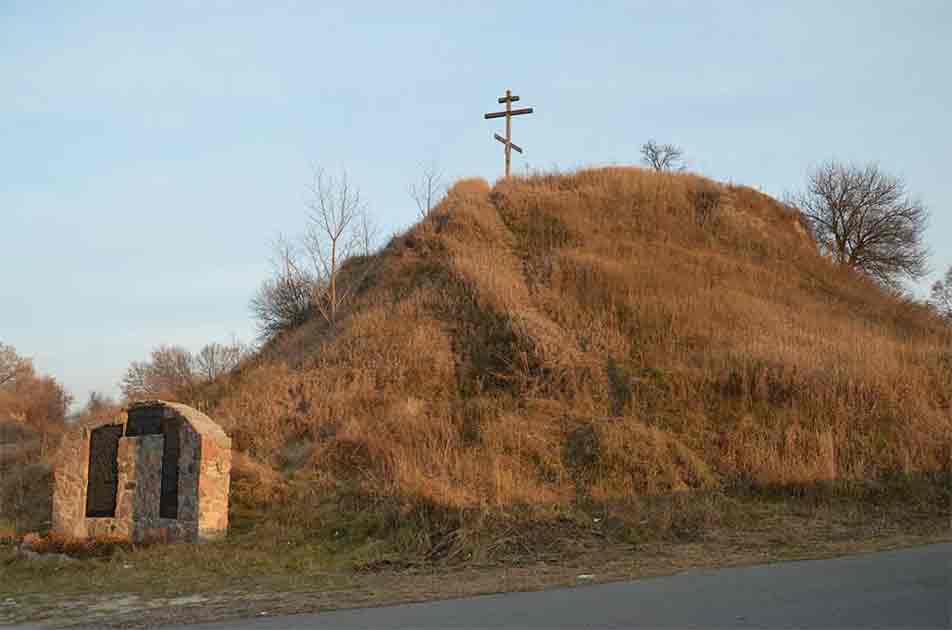The Brief but Bright Era of Bilhorod Kyivskyi
Nestled along the banks of the beautiful Irpin River, Bilhorod Kyivskyi, an ancient city-castle shrouded in the mists of history, stands as a poignant symbol of Ukraine's diverse heritage and vibrant culture. With a storied past stretching back millennia, from its humble beginnings as a Slavic settlement to its pivotal role in the Kievan Rus' era, Bilhorod Kyivskyi has weathered centuries of conquests, revolutions, and rebirths. Its incredible story emerges as a beacon of resilience, intertwining with the broader narrative of Eastern European history.
- The Mongol Onslaught: When Ukraine Fell to the Horde (Video)
- Prince Igor of Kiev (Kyiv): War and Diplomacy in the Early Rus’
The City of Bilhorod Kyivskyi is an Important Part of Ukrainian Heritage
The origins of Bilhorod Kyivskyi can be traced back to the 9th century AD, when it was founded as a fortified settlement by the East Slavic tribe of Drevlians, or possibly the Polans. Strategically located at the confluence of important trade routes, including the famed Varangian route, the city quickly grew in prominence, becoming a bustling hub of commerce and culture within the Kievan Rus' federation.
- The Largest Surviving Fortress of its Era: Bilhorod Kyivskyi in the Ukraine
- The Kievan Rus’ – When Vikings and Slavs Cooperated to Shape History

Kievan Rus' trade negotiations with the Eastern Slavs. (Public Domain)
“With the arrival of the Varangians in the Middle Dnieper region and Oleg's capture of Kyiv, the Drevlians stubbornly resisted the Varangian expansion and repeatedly raised rebellions. To assert his power in the conquered lands, Oleg "sets up a city" (882). A later date of foundation of Belgorod can be connected with these chronicle lines.”
- Volodymir Hrypas, Ukraine Incognita, No.38, 2007
Under the rule of the Varangians, Bilhorod Kyivskyi flourished as a center of political power and religious fervor, with some of the most important Kievan rulers dwelling there. Vladimir I Sviatoslavich, known as Vladimir the Great, the Grand Prince of Kiev, built his castle at Bilhorod, and it was reportedly his favorite residence. Later on, the city became the seat of Kievan bishops, which reflects its immense importance at the time. Not only was it a religious and trade hub, but it also had a strategic position that protected Kiev itself.

Monument honoring Vladimir I of Kiev, who established Bilhorod Kyivskyi in Ukraine. (Visem / CC BY-SA 3.0)
In the Primary Chronicle, an important historical source of information on the Kievan Rus’, Bilhorod is mentioned in 1088 AD, as well as the Bishops who ruled there. In the 12th century AD, the city became as important as Pereiaslav and Novgorod, two key Rus’ cities. This is because it was officially the seat of the heir of the Grand Duke of Kiev. The reason for this was strategic: Bilhorod was extremely near to Kiev, and by placing his heir there, the Grand Duke could keep him under control, and the two could move between Kiev and Bilhorod at a moment’s notice. This first occurred under the rule of Vladimir II Monomakh, who placed his heir Mstyslav there in 1117 AD. Next, in 1140 AD, the city was taken by Vsevolod II of Kiev, who then gave it to his brother, Sviatoslav Olgovich. But by 1146 AD, the city was again taken, this time by Iziaslav II of Kiev. By 1159 it was the seat of Mstislav II of Kiev, the Grand Duke.
A Key City-Fort at Kyiv’s Doorstep
However, Bilhorod Kyivskyi's fortunes would ebb and flow with the tides of history, as did Kievan Rus’ itself. In the mid-1200s, the city was made the capital by Rurik Rostislavich, the Grand Prince of Kiev. It is at this time that Bilhorod reached its pinnacle and flourished immensely. But all that was soon to end. In the 13th century, the Kievan Rus’ was subjected to great attacks by the Mongols. In 1240 AD Kiev itself was completely destroyed, and Bilhorod followed soon, ceasing to exist in any records after that point. Such was the wrath of the Mongols, who spared no one on their great path of war.
“With the fall of Kyiv in 1240, almost all the factors that caused the appearance and prosperity of Belgorod disappeared, and this city never rose from the ruins. Its memory remained in the name of the village of Bilogorodka.”
- Volodymir Hrypas, Ukraine Incognita, No.38, 2007
Only a tiny village remained in the place where the powerful city once stood. To this day, the village remains standing. In its vicinity, the barely discernible ruins of the ancient city can still be seen. Parts of the ramparts still jut out of the ground, overgrown with grasses and weeds. The site carries great archeological potential, even though it was never fully excavated.

Remains of the castle at Bilhorod Kyivskyi in the Ukraine. (Kiyanka / CC BY-SA 4.0)
A City That Fell to Mongols
Without a doubt, Bilhorod Kyivskyi holds the indomitable spirit of the Ukrainian people, a living embodiment of their resilience, and determination in the face of adversity. Starting as a modest Slavic settlement to its ascension as the seat of Grand Dukes and Princes, the city has weathered the storms of history, ultimately succumbing to the mightiest tempest of all. Contemplating the fate of Bilhorod Kyivskyi, one can't help but be astounded by the unpredictable and somber rhythm of Ukrainian history.
Top image: Remains of the castle at Bilhorod Kyivskyi in the Ukraine. Source: Kiyanka / CC BY-SA 4.0
References
Hrypas, V. 2007. Belgorod - “an outpost of the city of Kyiv.” Ukraine Incognita. Available at:
https://day.kyiv.ua/article/ukrayina-incognita/bilhorod-forpost-hrada-kyyeva
Martin, J. 1995. Medieval Russia, 980-1584. Cambridge University Press.
Raffensperger, C. 2012. Reimagining Europe: Kievan Rus’ in the Medieval World, 988–1146. Harvard University Press.
















